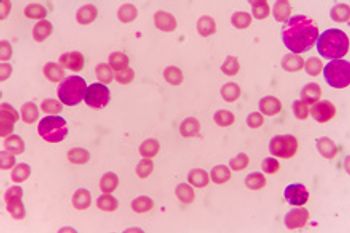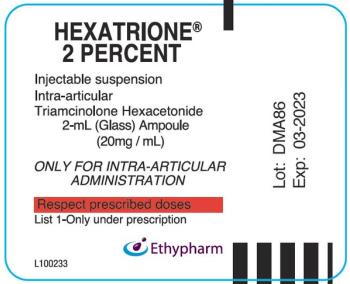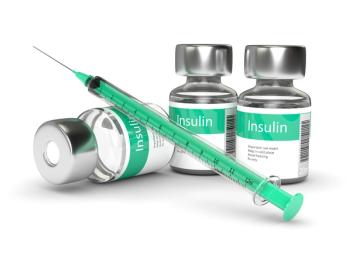
ICER's assessment of Biogen's controversial Alzheimer's drug, Aduhelm, was among the most read MHE articles about healthcare costs in 2021.

ICER's assessment of Biogen's controversial Alzheimer's drug, Aduhelm, was among the most read MHE articles about healthcare costs in 2021.

The FDA's warning about Xeljanz (tofacitinib) and other JAK inhiitors and the extension of its review of Janssen's CAR T therapy for multiple myeloma were among the best read articles about the agency in 2021.

COVID-19 remained the top healthcare story in 2021 with Managed Healthcare Executive® readers interested in vaccine news, how the pandemic has impacted care delivery and more.

The attention-getting articles about COVID-19 included news about Pfizer's booster and the FDA's rejection Zyesami (aviptadil) for treatment of COVID-19-related respiratory failure.

Many of the most-read articles from the print issues of Managed Healthcare Executive® focused on the cost of therapies.

The approval of the generic version of smoking-cessation drug Chantix (varenicline) garnered a lot of attention as did the OKs of Besremi (ropeginterferon alfa-2b-njft), a treatment for polycythemia vera, and Trudhesa (dihydroergotamine mesylate), a nasal spray for acute treatment of migraines.

Reporting of PRO in oncology clinical trials increased after standards from ISOQOL and others were published in 2013.

Patients with a variety of cancers spent much more money out of their own pocket than those in traditional plans. Some may be delaying treatment due to higher costs.

The price cut came as CMS begins to weight whether Medicare should cover Biogen's controversial Alzheimer's disease drug.

Although alternative payment models have been around for a while, they have never been more necessary.

Job losses from the COVID-19 pandemic are the highest since the Great Depression. A year and a half later, most Americans who lost their health insurance along with their job remain uninsured.

Provider information such as provider specialty, languages spoken, or an organization's ability to see new patients directly affects consumer access to quality care. When these or other types of information are incorrect, there are cascading effects that can impact the patient and other entities, responsible for managing and regulating benefits across the insurance products they offer.


New study shows opportunity exists to make healthcare more durable to further long-term gains in preparedness for emergencies like COVID-19.

The Johnson & Johnson vaccine is staying on the market, but the preference for the Pfizer and Moderna mRNA vaccines stems from concerns about the rare but real risk of blood clots from the J&J vaccine.

The FDA approved efgartigimod on Friday (Dec. 17). The treatment, which is being sold under the brand name Vyvgart, could foment price competition with Soliris (eculizumab) and other treatments usually reserved for severe or refractory cases of myasthenia gravis. But there is a long way to go. According to one cost-effectiveness analysis, Soliris should be priced at between 2% and 3% of its current price.

Early in the pandemic about 1 in 5 people admitted to the hospital with a COVID-19 diagnosis had obesity and in younger adults, obesity was associated with a doubling of the mortality risk.

Fluctuating body weight may worsen insulin resistance — and insulin resistance can, in turn, stress the kidneys and harm kidney tissue.

Consumers have a false sense of security about buying drugs from online platforms.

Prescription digital therapeutics are FDA approved and available only by prescription. Their developers are aiming to get them covered by insurers.

Blood cancer patients who had at least some antibodies after the first two doses are likely to produce large amounts after the third vaccination.

Many healthcare organizations find themselves in arrangements with technology vendors in which patient-reported outcomes measures are handled as an add-on to an existing electronic health records. The better way makes it easier and more convenient for patients to supply information and incentivizes engagement.

Healthcare executives look ahead to 2022 and the forces and events that will shape the American healthcare landscape.Amendola Communications compiled these comments from a variety of healthcare executives.


Baha Zeidan, CEO of Azalea Health, gives his take on the infrastructure legislation and the benefits it can provide for patient access to quality care, especially in traditionally underserved communities.

In COVID-19 news, FDA grants EUA to AstraZeneca’s monoclonal antibody to prevent infection and the FDA extends EUA of Pfizer/BioNTech Booster to those 16 and 17 years of age. The regulatory agency also approved a therapy for spasticity resulting from multiple sclerosis, and is requiring an updated boxed warning on three top-selling JAK inhibitors for rheumatoid arthritis. And FDA committee votes no on kidney disease drug.

Medexus is working with Ethypharm to generate the data needed to support an abbreviated new drug application for triamcinolone hexacetonide.

Despite the surge in late 2020, a study by Stanford researchers shows just a 10% drop in procedures from 2019 levels.

A temporary add-on payment in the Part B program should be considered as a way to increase biosimilar uptake, says Sandoz’s Afton Wagner.

The FDA in late November authorized the COVID-19 booster for all people 18 years of age and older.